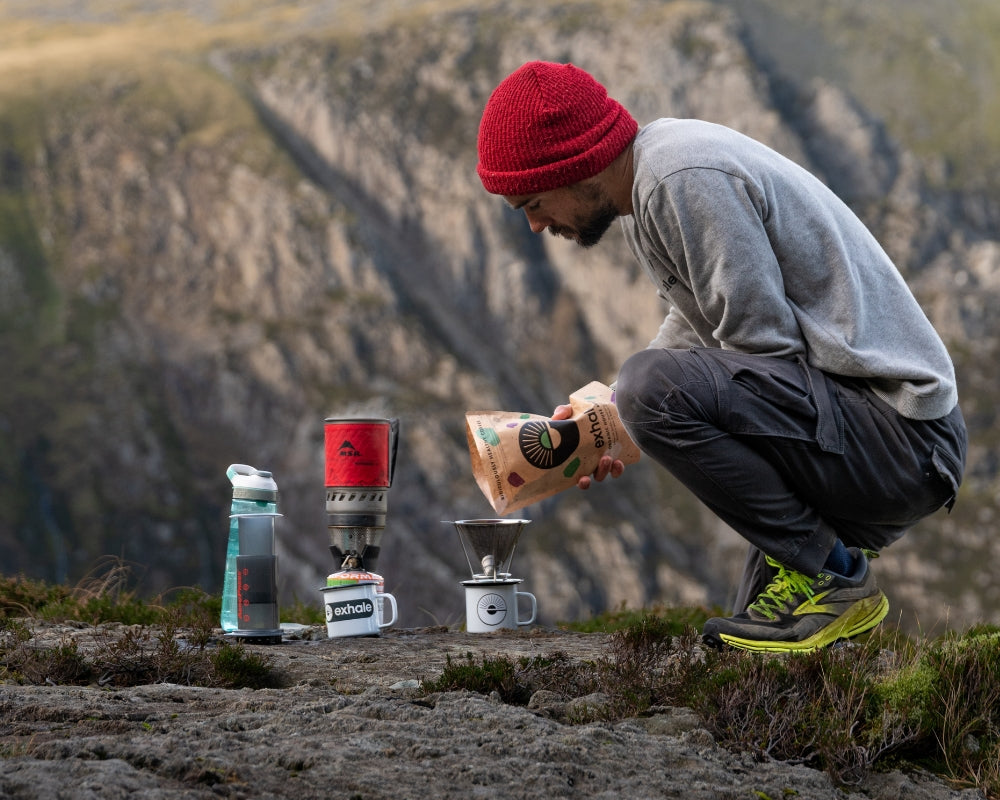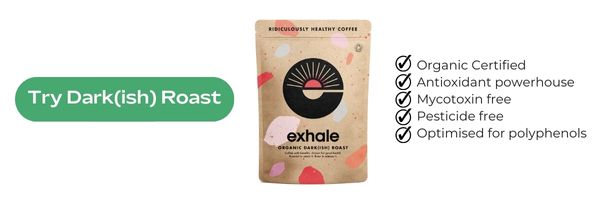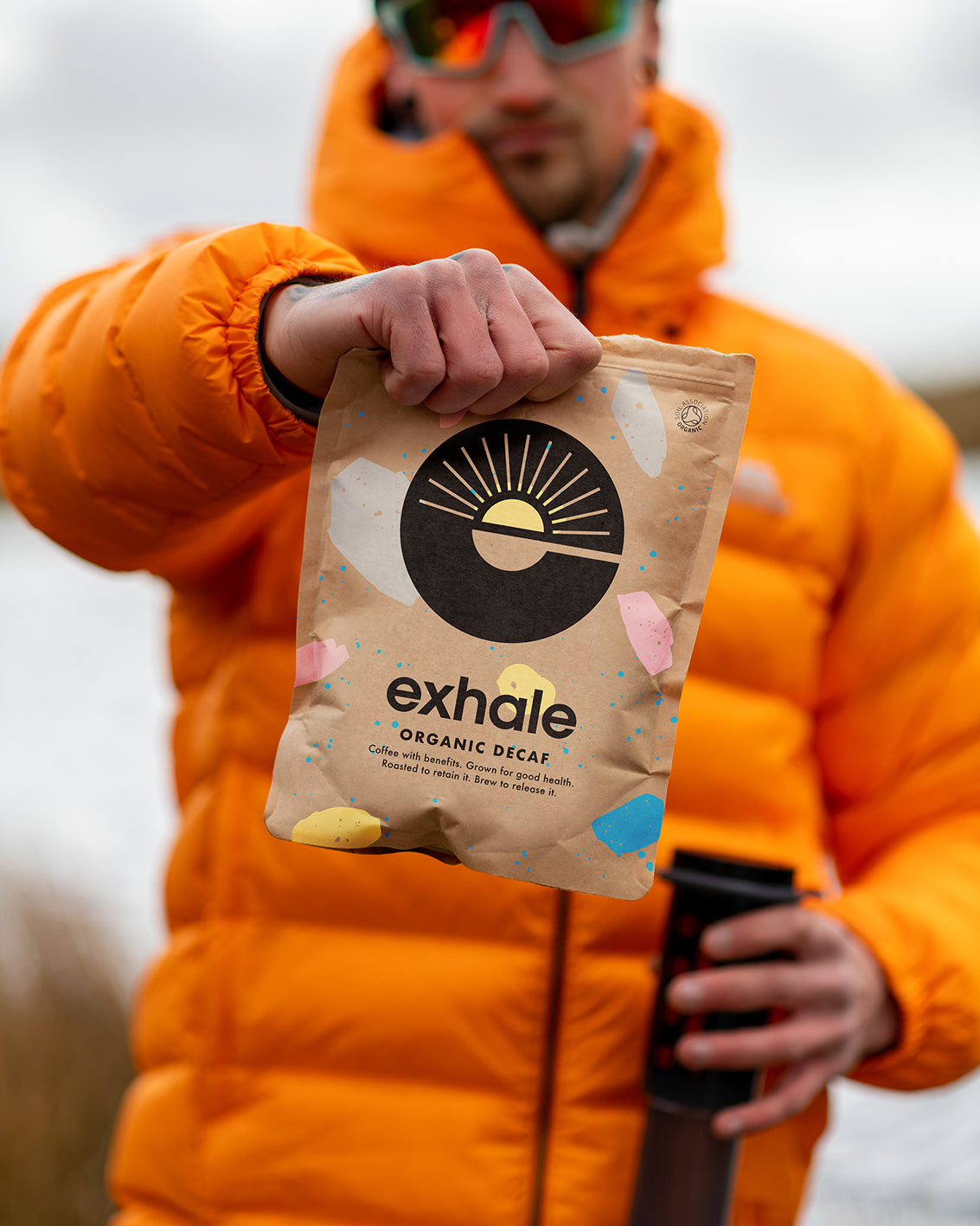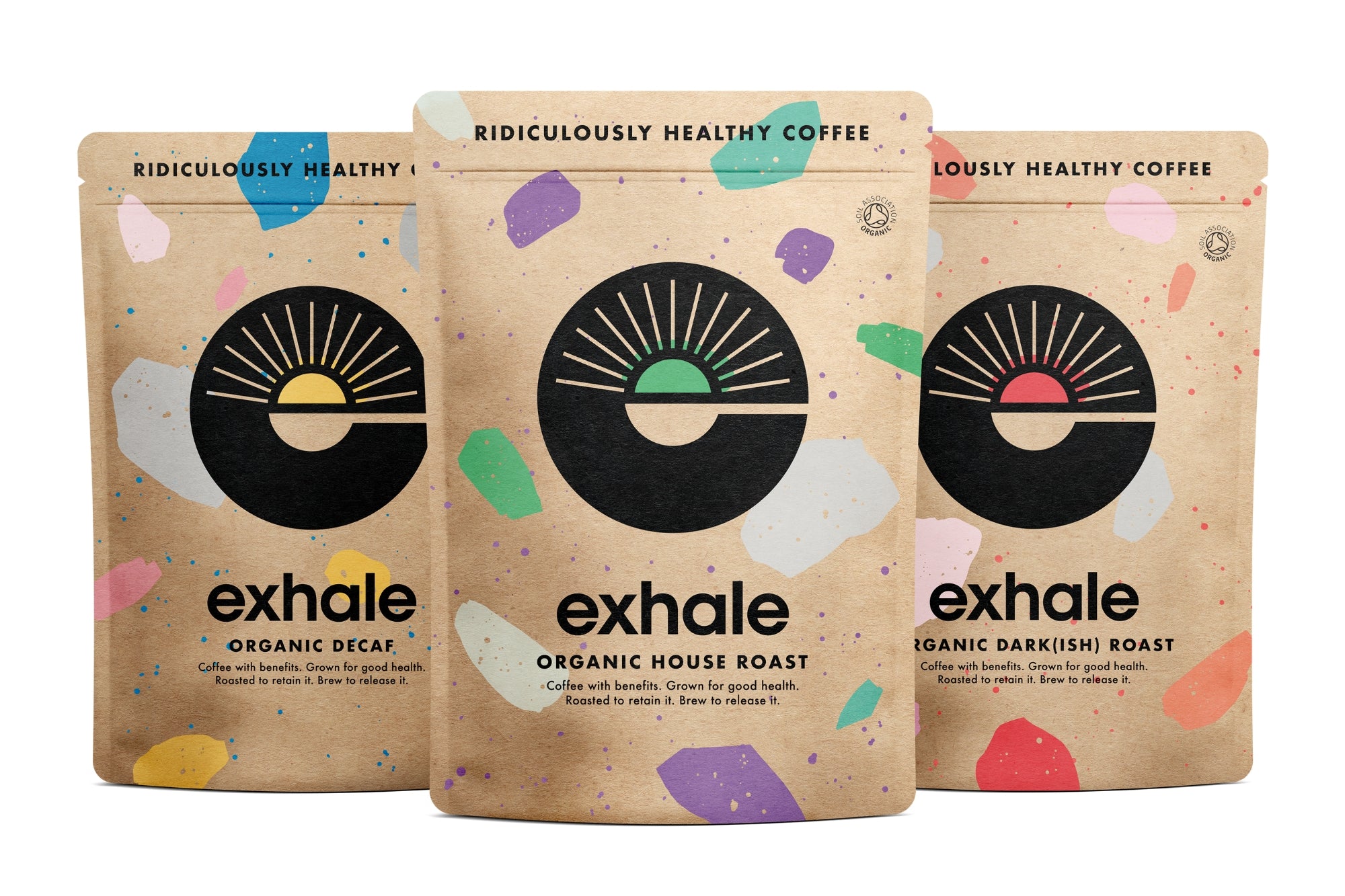Those of you who have been following along will be aware that, perhaps unsurprisingly, I’m a fan of caffeine.
But there are others who aren’t.
There is a dual purpose to this article today. One is to enlighten anyone who still thinks caffeine has no benefits, or worse, those who claim it is bad for your health (**shakes angry fist**).
But the main reason is discuss coffee's effects on cholesterol and to share a ground-breaking new study which, with the help of caffeine, explains a paradox of coffee that’s had me perplexed for years.

We’ve shared in our newsletter recently lots of new studies, which discuss the different beneficial effects of caffeine so let’s briefly start there.
Is caffeine good for you?
Caffeine has been repeatedly demonstrated to have broad ranging protective effects ranging from against cognitive diseases including Alzheimer’s Disease and Parkinson’s Disease (1, 2, 3, 4) to the various diseases of the liver (5, 6). This is in both observational and mechanistic studies.
It also has been shown to protect against the formation of kidney stones (7).
It both stimulates the production of your bodies own master antioxidant, Glutathione (8), and is a powerful antioxidant in its own right (9).
And it even has been shown to help burn fat (10)!
I’ll stop there, but it’s safe to say that caffeine has a lot of benefits. Providing you have a healthy relationship with it (i.e. don’t over consume it and don’t allow it to disrupt your sleep).
All 10 studies mentioned above were published in the last year alone and are just 10 of the many, positive research papers published on caffeine every year. (I promise I’ve not just selected the positive studies there! a.k.a. confirmation bias).
It should be noted that caffeine from non-natural sources, like energy drinks is a different story but that is outside of the scope of this particular article.
Is coffee bad for cholesterol?
If you Google coffee and cholesterol you will find plenty of reports on how drinking coffee is associated with increased cholesterol levels.
However, coffee has long been associated with a significantly reduced risk of the issues usually ‘caused’ by high cholesterol levels such as cardiovascular disease and heart attacks (11, 12, 13).

Most of us have heard by now how cholesterol has been mis-understood for years and it’s not as black and white as saying cholesterol is bad for you. But that discussion is outside of the scope of this article so for now let’s just assume an increase in cholesterol isn’t ideal.
To summarise, coffee drinking can increase cholesterol levels. But coffee drinkers have a reduced risk of the diseases caused by high cholesterol levels.
Therein lies the paradox. But how can this be? And by what mechanism?
A recent study suggests the answer lies in caffeine.
Why caffeine is good for cholesterol
PCSK9 is a protein which is made in the liver. Research has shown that people with high levels of PCSK9 have high cholesterol levels and are more likely to develop heart disease. If you have low levels the opposite is true.
This is because PCSK9 reduces the ability of tissues to remove LDL (the type of cholesterol often cited as being ‘bad’) from the blood.
In light of this, pharmaceutical drugs which inhibit PCSK9 production have been used as a new type of medicine to lower cholesterol levels. An alternative to Statins which have had some bad press.
What’s this got to do with coffee?
Well, a study from 2022 has shown that caffeine acts as a natural PCSK9 inhibitor! Caffeine effectively makes your liver more effective at recycling LDL cholesterol. Another thumbs up for caffeine.
Observational studies have shown for decades that coffee drinking is associated with a reduced risk of high-cholesterol-related diseases. However, this study is special because it now explains one mechanism behind why that is.
Coffee may cause a spike in LDL-cholesterol, but it also makes your body more efficient at clearing it.
Incidentally, the researchers used 400mg of caffeine in the study, which is the exact amount of caffeine you’re getting from two small cafetiere’s of Exhale House Roast or Dark(ish) Roast coffee. Detailed in full, here.

This is the daily ‘dose’ I recommended in my recent article ‘How much coffee should you drink for maximum health benefits?’.
Can you avoid a cholesterol spike in the first place?
Yes, you can.
If you drink coffee using a paper filter it will remove most of the oils in coffee which can cause the increase in cholesterol. Many recommend this. And if you’ve been told you suffer from high-cholesterol levels, you should consider this and talk it through with your doctor.
But at Exhale, we don’t recommend it. In fact we advise that it’s better for you (and the environment) if you don’t use paper filters at all!
Why you want oils in your coffee
We recommend using a steel filter to allow these oils to pass through into your brew. The reason is two of coffee’s healthiest compounds, cafestol and kahweol, are fat soluble and so are associated with the oils in coffee. Use a filter paper and you remove up to 98% of the cafestol and kahweol.

Cafestol and kahweol both have been shown to have extensive anti-inflammatory, anti-cancer and other potential pharmacological activities (15).
They can prevent cancer from occurring by blocking the activation of carcinogens and improving liver detoxification function.
They are also seen to be anti-diabetic by increasing insulin secretion and glucose uptake in muscle cells, as well as inhibiting adipogenesis by activating the AMPK pathway.
If that last bit flew over your head, just know that you want these two diterpenes, cafestol and kahweol in your life!
The small spike in cholesterol is the price you pay for keeping these two science-backed, seriously beneficial compounds in your coffee.
Read our blog ‘It’s time to ditch the paper filters’ for more on why we recommend using a steel filter. .
Is Exhale coffee better than other coffees?
PCSK9 inhibition by caffeine is one mechanism by which coffee can protect against the risk factors of high-cholesterol levels. But it's not the only one.

Chlorogenic acid (the most abundant polyphenol in coffee) also helps by inhibiting the oxidation of LDL-cholesterol in your blood and below the surface of blood vessels, and so research indicates it may offer protection against cardiovascular disease (16).
All of our coffee’s, including decaf (so don’t worry decaf drinkers!), are sourced and roasted, and independently lab tested many times, to ensure the highest levels of chlorogenic acid.
Another relevant mechanism that has been studied is how coffee increases the concentration of SIRT-1 (sirtuin 1) in the blood. SIRT-1 is a protein produced by the body that is cardioprotective and so could be another cause of the reduced cardiovascular risk seen in coffee drinkers (17).
Interestingly, the same study also saw that a coffee which is a blend of both arabica and robusta beans increased cholesterol levels… whereas pure arabica coffee didn’t. There aren't many other studies which separate out the effects of robusta beans from arabica beans on cholesterol levels. But there was one study on an Ethiopian arabica coffee which also didn't increase LDL-cholesterol.
Based on this, there is cause to consider whether it’s robusta beans that gave coffee it’s bad rep and that arabica beans never actually increased cholesterol levels in the first place!
Another reason to drink a 100% pure arabica coffee like Exhale.
Watch this space for any research on this as it unfolds.
In conclusion
Coffee can cause an increase in cholesterol levels. However, coffee is paradoxically associated with a reduced risk of cardiovascular disease and other cholesterol-related illnesses.
This observed protective effect of coffee has very recently been explained by the below three mechanisms:
- Caffeine is a PCSK9 inhibitor
- Chlorogenic acid inhibits the oxidation of LDL-cholesterol
- Coffee increases the concentration of SIRT-1
The increase in cholesterol levels can be avoided by using a paper filter which filters out the oils in coffee which may be preferable for some. But this also removes two of coffee’s healthiest compounds, cafestol and kahweol.
For this reason we recommend using a steel filter, allowing the oils to pass through, to fully benefit from all the wonderful mechanisms at play in making Exhale coffee a ridiculously healthy addition to your diet.
As ever, please share any comments below.
Al x
P.S. If you have been told you have high cholesterol levels you should talk this through with your doctor as I’m merely reporting on the research here! Please seek proper medical advice.
- https://pubmed.ncbi.nlm.nih.gov/36768476/
- https://pubmed.ncbi.nlm.nih.gov/36361750/
- https://pubmed.ncbi.nlm.nih.gov/36721713/
- https://pubmed.ncbi.nlm.nih.gov/36427528/
- https://pubmed.ncbi.nlm.nih.gov/36916513/
- https://pubmed.ncbi.nlm.nih.gov/36324678/
- https://pubmed.ncbi.nlm.nih.gov/36299992/
- https://pubmed.ncbi.nlm.nih.gov/36522121/
- https://pubmed.ncbi.nlm.nih.gov/36361861/
- https://pubmed.ncbi.nlm.nih.gov/36495873/
- https://pubmed.ncbi.nlm.nih.gov/36397104/
- https://pubmed.ncbi.nlm.nih.gov/36839290/
- https://pubmed.ncbi.nlm.nih.gov/36316990/
- https://pubmed.ncbi.nlm.nih.gov/35140212/
- https://pubmed.ncbi.nlm.nih.gov/31480213/
- https://pubmed.ncbi.nlm.nih.gov/24062792/
- https://pubmed.ncbi.nlm.nih.gov/35683374/








6 comments
Claire Allman
Hi, I’m new to Exhale and actually enjoying my first cup of organic dark roast whilst reading this article. I also have Crohn’s disease amongst other autoimmune conditions and have just been diagnosed with high cholesterol which is why I chose to read this very interesting article. I’m fed up with being housebound with my autoimmune conditions and was very skeptic about trying Exhale coffee – I’m very fussy when it comes to coffee- but I must say I’m loving the taste and looking forwards to seeing other benefits it gives me. I also loved the paper booklet that came with my trial pack with the code to scan bringing me straight to this article, I will certainly be checking out the other articles too and your podcasts although I don’t even know what a podcast is. Thank you xxx
Andy
Hi Al,
Thank you for another great read & the Scientific Facts regarding the Truths around what’s good & bad about coffee, your research backs up what I believe to be factual based rather than the usual hype, I do love your excellent Exhale brew & I don’t use paper filters, I have a coffee maker that uses a metal filter strainer, hopefully all the good stuff seeps through and the not so good stays behind 🙏
Looking forward to trying the other 2 brews, keep up the great work guys.🤗☕️
Avdesh
Hello Al.
I was pouring 90 degree water directly on to a large table spoon of specialty coffee grinds, letting it brew, leaving the coffee in there then drinking. This was my routine for 2 and a half years, 1 cup a day, convenient and great coffee.
Then I noticed an ache around my heart area when breathing. Remembering an article related to coffee oils and the heart, I stopped my coffee routine and read that paper filter method was the safest as it removes the most oils. I now use Tiamo unbleached paper filters, no more chest discomfort.
I’ve ordered exhale medium roast and wanted to use your steel filter, what do you think?
Thanks Al
Alex
Hey Stuart, (I’ll also send this to you message via email) the only research I’ve read is comparing filtered vs unfiltered. I.e. using a paper filter, which removes almost all of the oils vs not using a paper filter which removes almost none! So if cholesterol really is an issue for you then I’d air on the side of caution and use a paper filter. You’ll still benefit from all the other compounds in coffee that are water soluble even if not the fat soluble ones.
Incidentally, there was another study published on this very topic yesterday https://pubmed.ncbi.nlm.nih.gov/36949243/ which again concludes coffee increases LDL but only if you drink 5 cups or more a day. 4 or less cups wasn’t associated with an increased LDL. And it also showed no association with cardiovascular diseases:
“However, possible coffee-induced elevations of LDL-cholesterol were not accompanied by a rise in the prevalence of cardiovascular diseases such as coronary artery disease or peripheral artery disease.”
Full article here published in Nature:
https://www.nature.com/articles/s41598-023-31857-5
Cheers! Al
Stuart McCaughey
Hi Al- thanks for another well balanced informative article. I was wondering if you have any other data on the oil content when using other methods of brewing coffee? Like French press? And is there any info out there on my favourite method – the drip pot method with the reusable cloth filter?? Thanks
Leave a comment
All comments are moderated before being published.
This site is protected by hCaptcha and the hCaptcha Privacy Policy and Terms of Service apply.